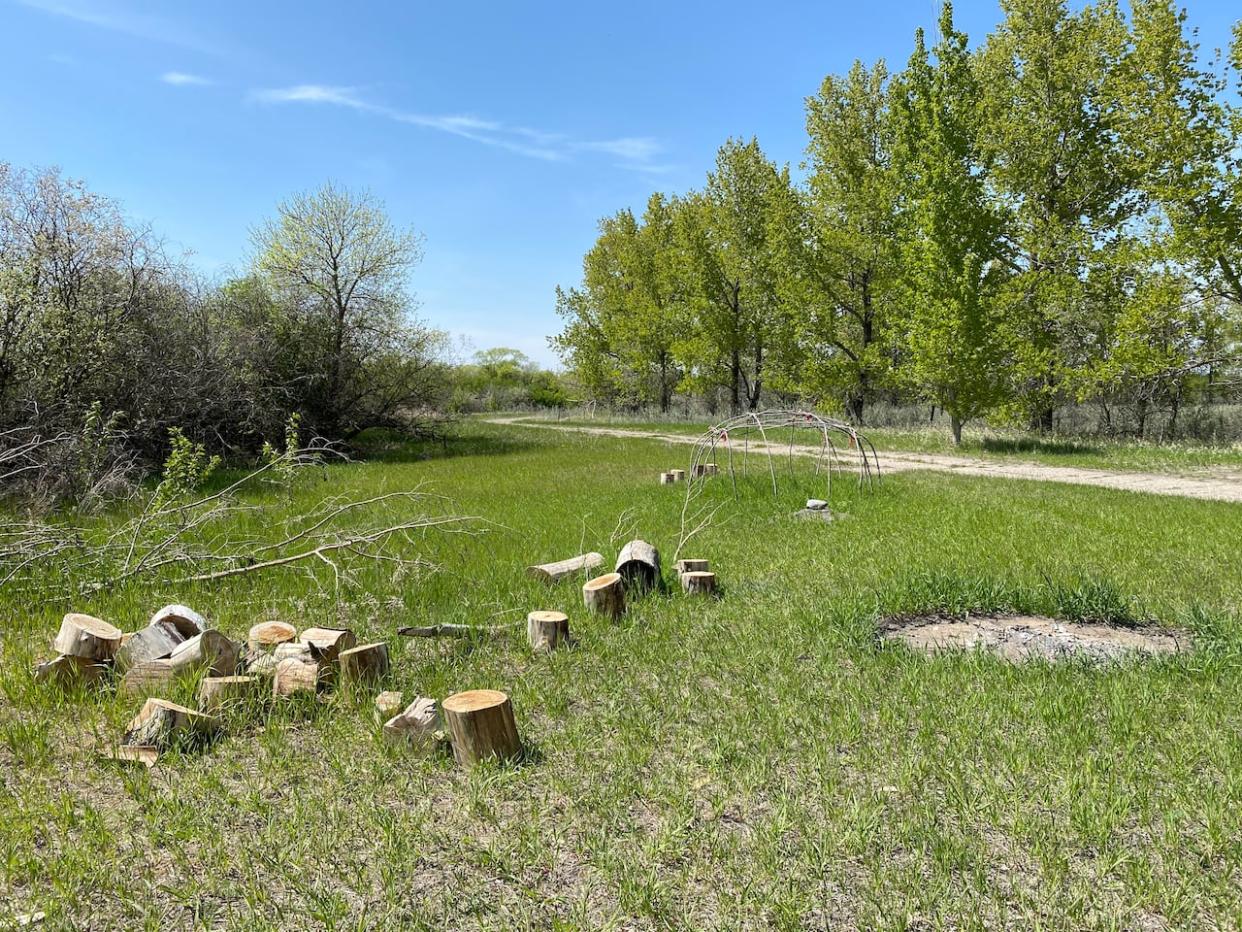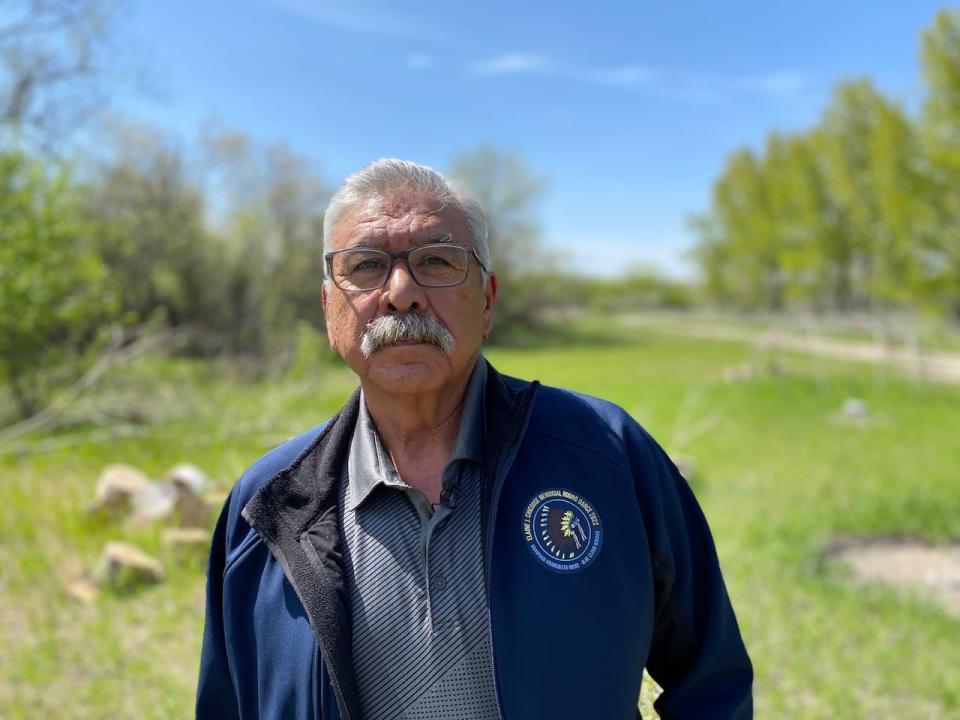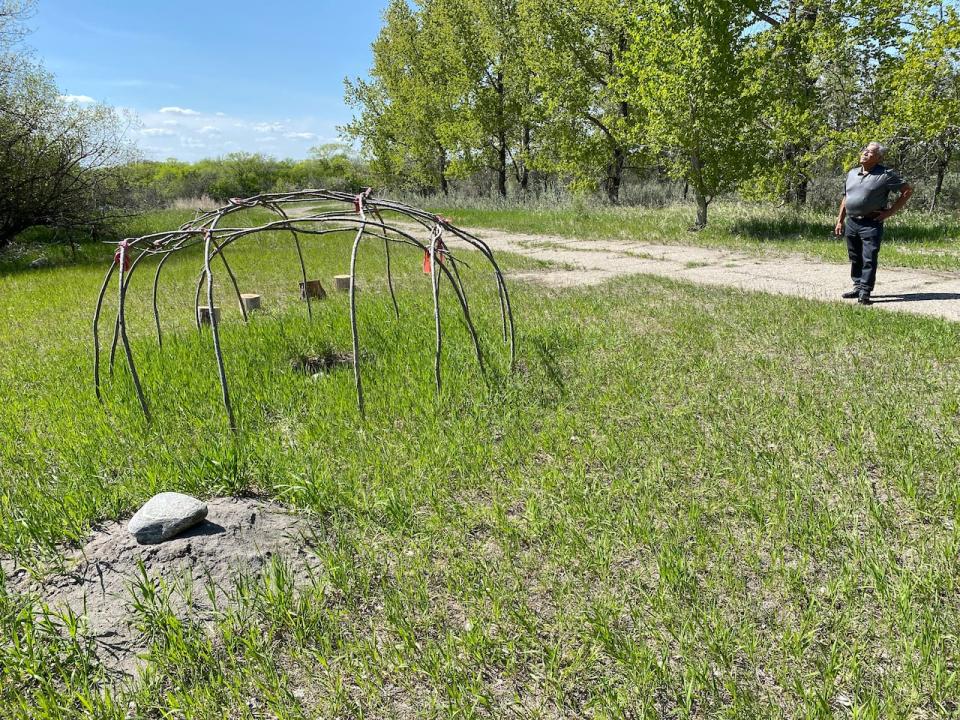Secluded former campground in Regina will become site for Indigenous ceremonies

A site recently approved by Regina city council for Indigenous ceremonies will help people hoping to connect with their history and identity, an elder from Piapot First Nation involved in the decision says.
"I'm happy that we're doing this — that it's something that will always be here, hopefully," said Harry Francis.
City council unanimously approved a five-year development plan for the location, the former site of the King's Park campground, on May 8.
A report from city administration says several members of the local Indigenous community had raised the need for a place in the city to hold ceremonies such as sweats.
Francis was part of a Regina Police Service advisory group invited to meet with city staff.

Harry Francis, who likes to be referred to as a kêhtê-aya (meaning old one) in his Cree language, hopes the site will become an important space for urban Indigenous people because of the lingering damage from colonization and the residential school era. (Louise BigEagle, CBC Saskatchewan)
"A lot of our people took up residence in the city for many different reasons, and live in the city, and there was an inquiry about ceremonies — wanting to not travel so far to attend one," Francis said.
Those involved in the planning looked at the King's Park campground site, which hasn't been used in more than 30 years. Away from the noise of the busy city, instead awash with the sounds of nature, they decided it is the perfect spot.
Francis said they wanted to see what it would be like to have a sweat lodge on the site, so they built a temporary lodge and held a ceremony.
"We decided, yeah, this is an awesome place, it's almost back to nature when you're out here," Francis said.
The site will include two teepees and a trailer for washrooms.
Francis said the first year will be about learning what is needed to host a sweat lodge and welcome participants. Eight sweats are scheduled for the first year, with the first set to take place on June 7.
In the second year of operation, surrounding reserves will be invited to host sweat lodges and other ceremonies for their urban members, Francis says, since every community has its own way of doing things.

Francis inspects the new site to host Indigenous ceremonies, which he hopeswill give urban Indigenous people a chance to heal themselves. (Louise BigEagle, CBC Saskatchewan.)
The city will be working with groups including Growing Young Movers to bring youth in for one of the first sweats.
A sweat lodge addresses the four parts of being a human, Francis says: the spiritual, mental, physical and emotional sides.
This will become an important space for urban Indigenous people, he says, because of the lingering damage from colonization and the residential school era.
"A lot of people are exploring their identity," he said. "It's in their DNA to have something like this to help them with life."
Francis hopes it will help stabilize families and keep them safe.

 Yahoo News
Yahoo News 
